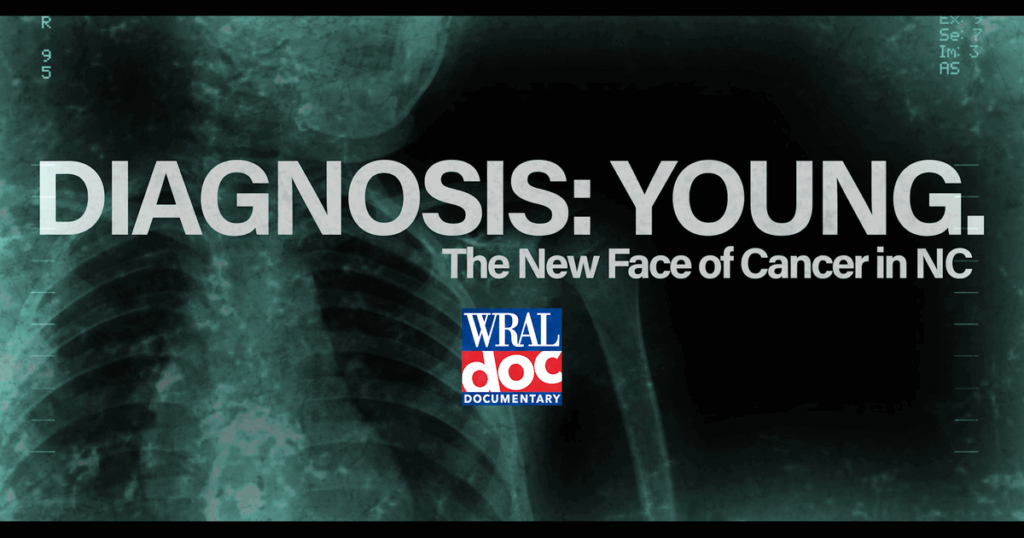
Cancer, a disease characterized by the uncontrolled division of abnormal cells, is increasingly affecting younger populations. Recent data indicates that by 2025, more than 2 million new cancer cases will be diagnosed in the United States, with 618,120 fatalities expected. In North Carolina, cancer ranks as the second leading cause of death, trailing only heart disease. Between 2010 and 2019, early-onset cases of 14 different cancers, including colon, breast, uterine, and testicular cancers, have surged among younger age groups.
Increasing Cancer Diagnoses in Younger Populations
Dr. Cary Anders, associate director for clinical research at Duke Cancer Institute, observes a troubling trend: “Over the past five to six years, I’ve been struck by the younger age of our patients with GI malignancies.” Dr. Ashwin Somasundaram from UNC School of Medicine confirms this pattern, noting that “one in five colorectal cancer diagnoses now occur in individuals under 55.” Additionally, more women under 40 are being diagnosed with endometrial or uterine cancer.
Dr. Nicholas DeVito from Duke Cancer Institute highlights a significant shift: “In the past two to three years, I’ve noticed patients with these types of cancers even in their twenties.” Dr. Angela Alvarez Secord, a gynecologic oncologist, shares a personal connection, stating, “A neighbor’s cancer diagnosis profoundly affected me and changed my research trajectory.”
Environmental and Lifestyle Factors
Experts are delving into potential causes, examining environmental and lifestyle factors. Dr. Anders questions, “What is the molecular reason for this, and what are the environmental or genetic reasons?” Researchers are investigating diet, environmental factors like air and water quality, and lifestyle habits to understand changes in the U.S. population that could be triggering cancer.
Dr. Somasundaram emphasizes the need to consider environmental influences: “We have to believe there’s an environmental influence, whether it’s the air we breathe, the food we eat, or our daily activities.” Obesity, a prevalent issue, is linked to increased cancer risk. Dr. Secord explains, “Higher weight impacts hormone production, which can trigger uterine cancer.”
About 75% of the American diet consists of ultra-processed foods, which are linked to a higher cancer risk.
Studies highlight the dangers of ultra-processed foods. A Norwegian study found that a 10% increase in such foods could raise cancer risk by 13%, while a Chinese study noted a 30% higher chance of colon cancer in men consuming the most ultra-processed foods.
Research and New Therapies
Innovative research is underway in North Carolina to understand why younger individuals are facing cancer diagnoses. The YOGI group at Duke Health, comprising various specialists, is using a digital biobank to explore causes and develop treatments for patients under 50.
Dr. Secord’s work at the Endometrial Cancer Consortium, inspired by a neighbor’s journey, aims to offer hope through personalized therapies. “We’re on the cusp of a new era of individualized therapy,” she says, emphasizing the potential for targeted treatments.
Dr. DeVito shares a success story: Bianca Harvey, diagnosed with stage 4 colon cancer at 34, is now responding well to immunotherapy. “Her tumor has continued to shrink, her blood work looks great, and she’s feeling better,” he reports. Harvey’s participation in clinical trials contributes to broader research efforts.
Future Directions and Prevention
Efforts to understand and prevent early-onset cancer continue. Dr. Anders highlights the importance of ongoing research into environmental and genetic interactions. “The goal is prevention,” he states, “though we also seek better treatments for existing cancers.”
Dr. Somasundaram advises individuals to consult primary care doctors about screenings and to adopt healthy lifestyles. “Avoid ultra-processed foods, engage in regular exercise, and ensure vitamin D exposure,” he recommends.
The documentary “Diagnosis: Young. The New Face of Cancer in NC” by WRAL explores this alarming trend and is available on WRAL’s streaming platforms. It delves into the personal stories of young North Carolinians facing unexpected cancer diagnoses, seeking to answer the pressing question: Why is this happening?







